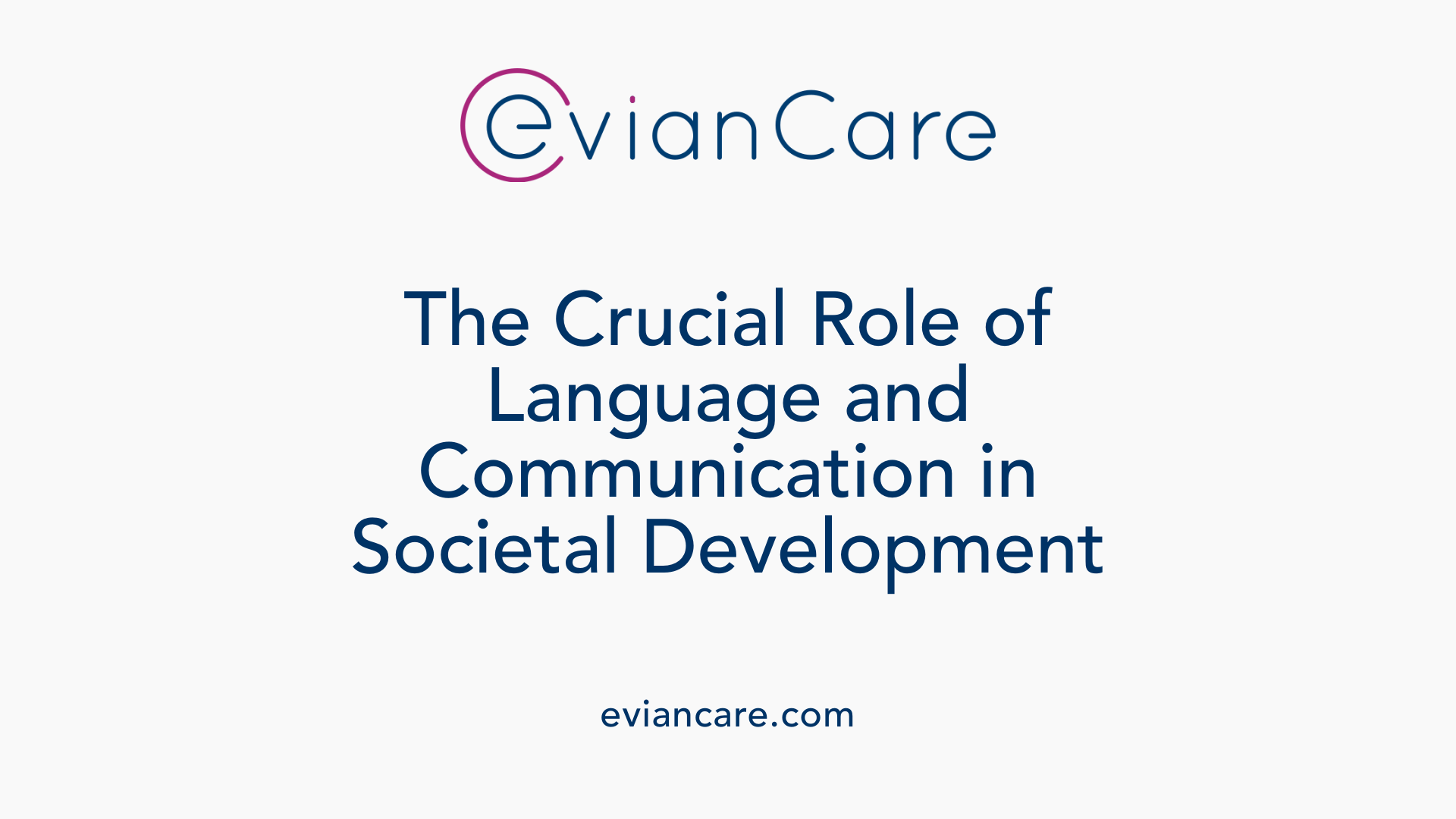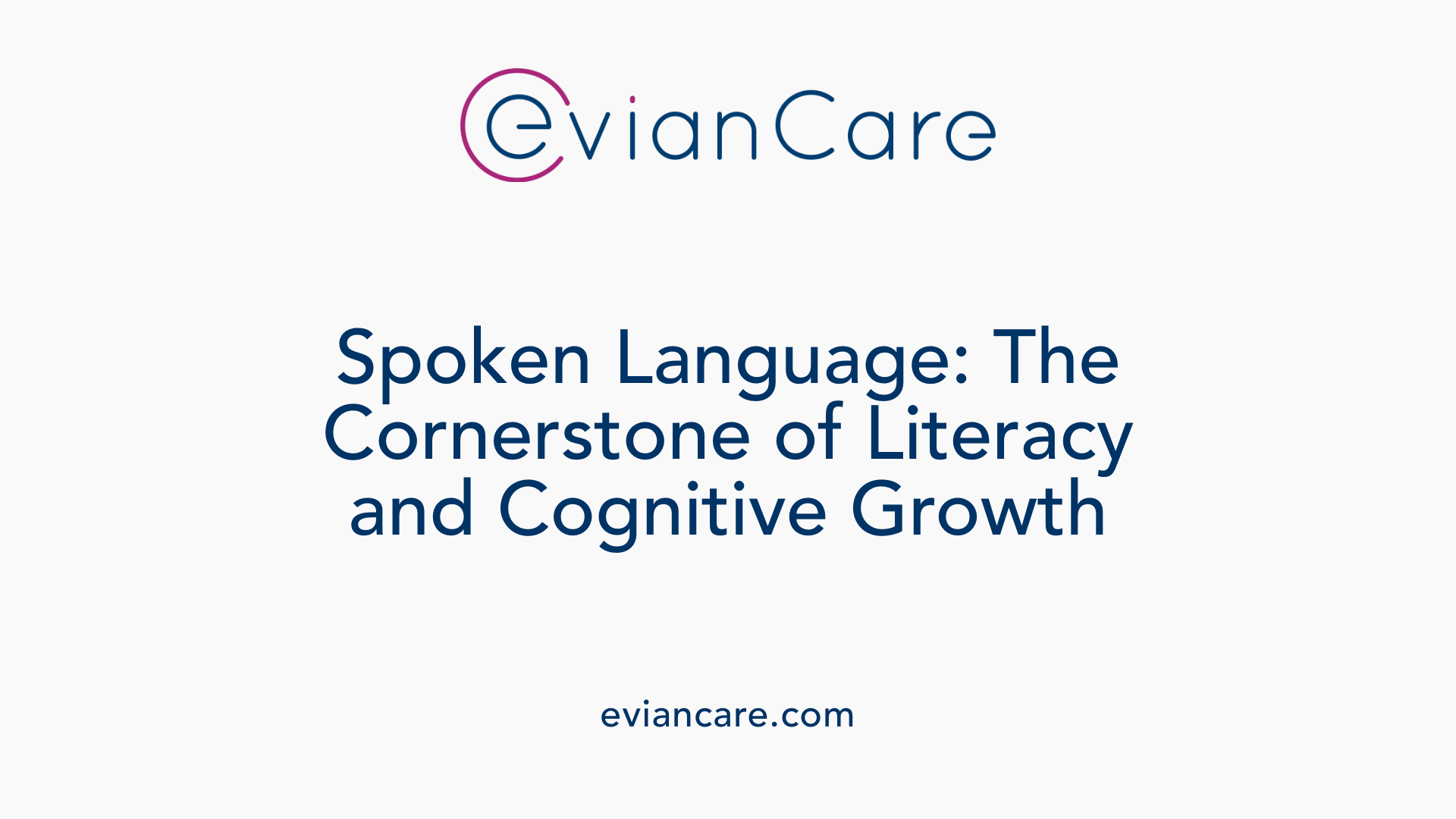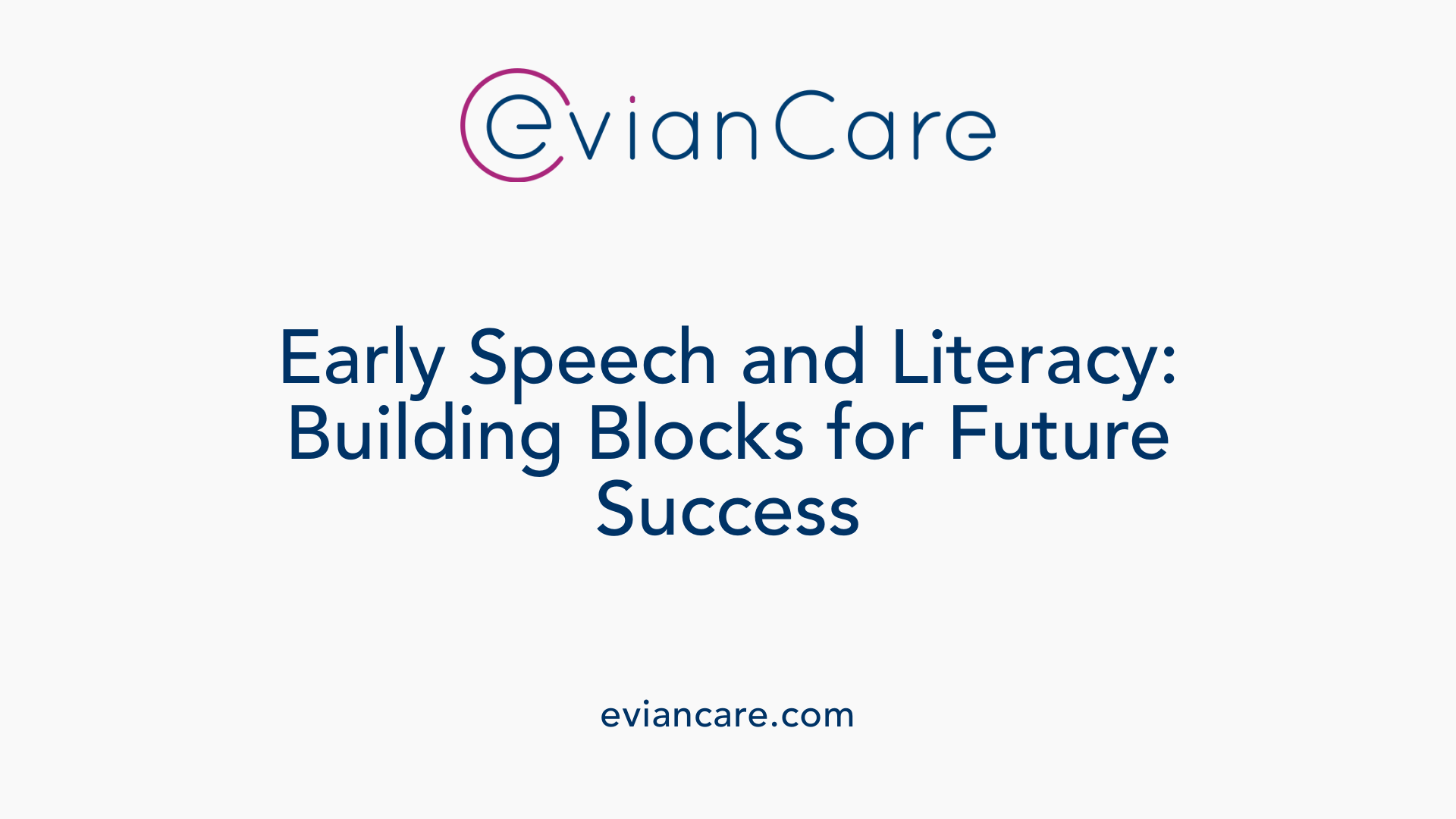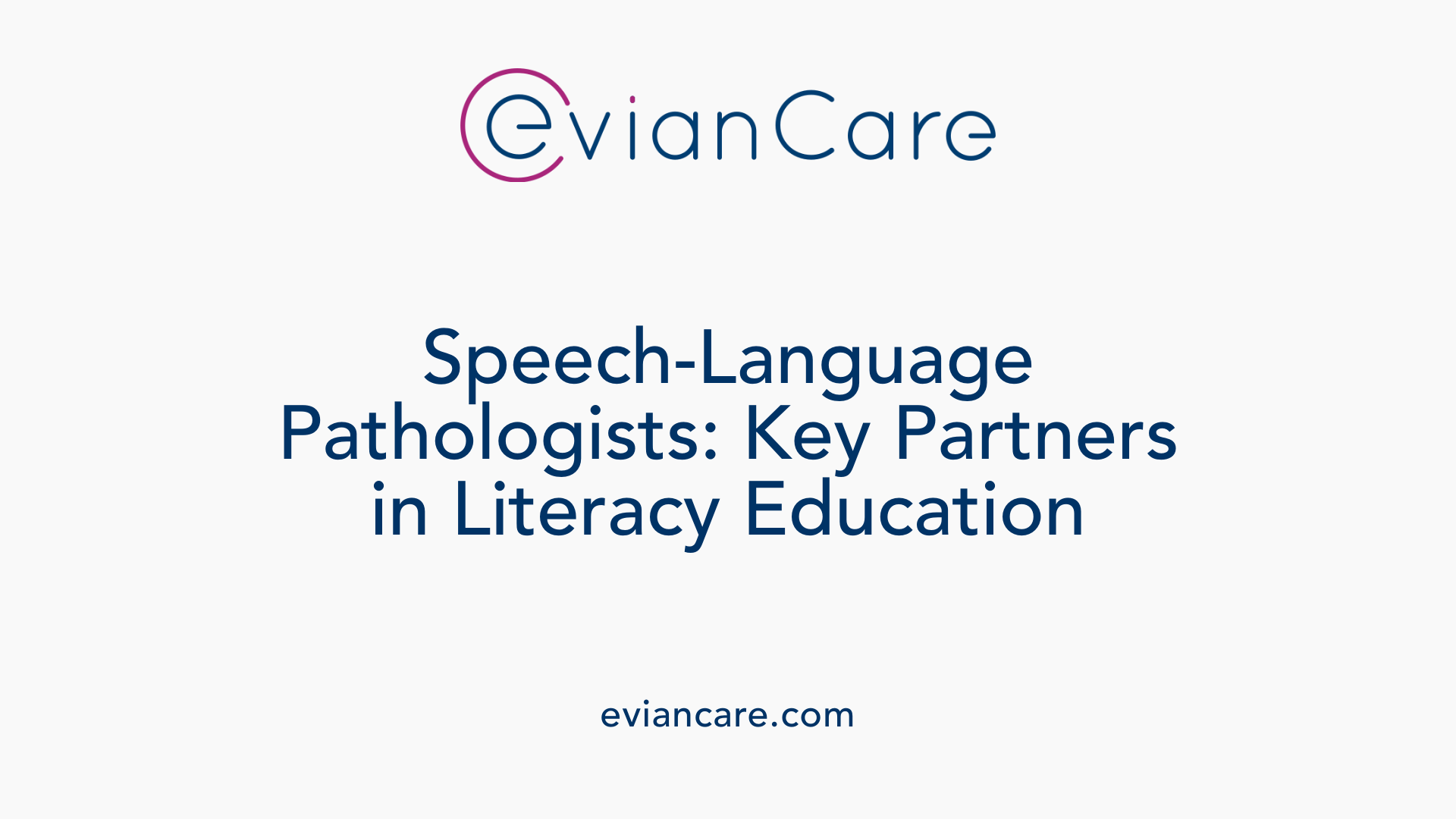
Understanding the Critical Link Between Speech Therapy and Literacy
Speech therapy, facilitated by speech-language pathologists (SLPs), plays an indispensable role in fostering literacy development in children and adolescents. Recognizing that spoken language lays the groundwork for reading and writing, this article explores how targeted speech and language strategies support early literacy, address developmental challenges, and promote lifelong learning. By examining techniques, evidence, and professional resources, we highlight the comprehensive impact of speech therapy in nurturing proficient communicators and readers.
Defining Literacy and Its Societal Importance

How do speech-language pathologists collaborate with educators to support literacy?
Speech-language pathologists (SLPs) work closely with teachers to boost students’ literacy skills. They provide expertise on phonemic awareness, vocabulary, syntax, and other language components essential for reading and writing. SLPs often conduct assessments to identify children who may be at risk for literacy difficulties.
In classroom settings, they may co-teach literacy strategies or offer targeted interventions, especially for students with communication or language disorders. SLPs also support parents and caregivers by coaching them on activities that foster literacy at home.
What does SLPs’ knowledge of language components contribute?
SLPs bring a deep understanding of the five language subsystems—phonology, morphology, syntax, semantics, and pragmatics—to literacy development. This knowledge enables them to assess specific areas such as phonological awareness, which is crucial for decoding words, and semantic skills, which support vocabulary and comprehension.
They utilize diagnostic tools to evaluate language processing and tailor interventions accordingly. Whether addressing speech sound disorders, language delays, or reading comprehension issues, SLPs focus on strengthening foundational skills that underpin literacy.
How do SLPs intervene in literacy challenges?
Interventions by SLPs are often targeted and evidence-based. They may include phonological awareness training, decoding exercises, vocabulary development activities, and strategies to improve comprehension. For children with language delays, therapy might involve enhancing sentence structure, oral language expression, and listening skills.
SLPs also employ play-based and storybook activities to promote language use alongside literacy skills. By working with educators, they help integrate these strategies into daily routines, making literacy learning engaging and effective.
Why are early assessments and interventions important?
Early identification of language difficulties is vital because spoken language forms the foundation for reading and writing. SLPs assess children’s abilities in listening, speaking, and understanding language before literacy skills are fully developed.
When addressed promptly, these early interventions can prevent future academic struggles. For instance, strengthening phonemic awareness in preschool children significantly boosts their reading readiness.
What is the significance of collaboration in literacy development?
Collaboration is central to maximizing literacy success. SLPs coordinate with teachers, reading specialists, speech therapists, and families to create comprehensive support plans. This teamwork ensures consistency in strategies and helps address individual learner needs.
By fostering an integrated approach, SLPs help children build stronger connections between spoken and written language, ultimately improving literacy outcomes across diverse populations.
How do literacy skills develop through stages?
Literacy development occurs in stages—emergent literacy, alphabetic, stages of words and patterns, intermediate, and advanced. In each phase, children acquire skills such as phonemic awareness, decoding, fluency, and comprehension.
SLPs monitor progress at each stage and provide tailored interventions. For example, during emergent literacy, the focus might be on listening and storytelling, while later stages emphasize decoding complex words and understanding texts.
What resources support SLPs in literacy work?
SLPs’ ongoing professional development is crucial. Resources include academic programs, textbooks, journals, and in-service training. Conferences and online courses, such as those approved by the American Speech-Language-Hearing Association (ASHA), keep SLPs updated on the latest research and instructional strategies.
This continuous learning helps SLPs stay effective in addressing evolving literacy challenges, especially as new technologies and instructional methods emerge.
| Aspect | Role of SLP | Key Literacy Components Improved |
|---|---|---|
| Assessment | Identifies language and literacy risks | Phonology, Morphology, Syntax |
| Intervention | Provides targeted therapy | Decoding, Vocabulary, Comprehension |
| Collaboration | Works with teachers, families | Literacy strategies in classroom and home |
| Early Intervention | Prevents future difficulties | Phonemic awareness, Listening skills |
| Resources | Maintains professional expertise | Updated strategies and tools |
How do SLPs support lifelong literacy?
SLPs are instrumental beyond childhood. They assist adolescents and adults with communication and literacy challenges, including reading disabilities such as dyslexia. Their expertise helps individuals build confidence and independence in literacy tasks, supporting educational achievement and employment opportunities.
Overall, speech-language pathologists are essential allies in the quest to improve literacy for all learners. Their comprehensive understanding of language processes, combined with collaborative efforts, ensures children and adolescents develop the strong reading and writing skills necessary for success in school and life.
The Foundation of Literacy: Spoken Language and Cognitive Development

What is the relationship between spoken language and literacy?
Spoken language and literacy are deeply intertwined, with early spoken language skills serving as the foundation for reading and writing abilities. From birth, children begin to develop sound recognition, vocalization, and communication skills that are critical for literacy.
The first three years of a child's life are especially important, as they undergo rapid speech and language development. During this phase, children learn to produce sounds, understand words, and grasp the basics of conversation. These skills are essential for building vocabulary, comprehension, and an interest in reading.
Active engagement in oral language activities, such as reading aloud, storytelling, and everyday conversations, enhances these foundational skills. As children develop their spoken language, they improve their understanding of syntax, semantics, and pragmatics, which are necessary for decoding words and constructing meaning during reading and writing.
Research indicates that about 20% of children entering school have speech or language difficulties. Such challenges can hinder literacy progress, leading to struggles with reading fluency, comprehension, and writing as they advance academically.
Therefore, fostering strong oral language from an early age not only supports immediate communication but also plays a vital role in later literacy success. This early linguistic foundation is crucial for educational achievement and functional literacy in daily life.
How do the stages of early language development support literacy?
Early language development progresses through various stages: emergent literacy, alphabetic understanding, and beyond.
- Emergent literacy involves children's earliest notions about reading and writing, such as recognizing print, connecting sounds with symbols, and engaging with stories.
- The alphabetic stage emphasizes understanding letter-sound relationships, enabling children to decode simple words.
- Later stages involve morphology, syntax, semantic understanding, and pragmatic skills, which support fluent reading and effective writing.
SLPs play an essential role in assessing these stages and providing targeted interventions to guide children through each phase, ensuring a smooth transition towards more advanced literacy skills.
Impact of speech delays and disorders on literacy
Speech delays and disorders, including articulation issues, phonological processing challenges, and language impairments, can significantly impede literacy development.
Children with speech sound disorders are over 50% more likely to encounter reading difficulties, as their ability to recognize and manipulate sounds in words is compromised.
Such challenges can affect phonemic awareness—the ability to hear, identify, and manipulate individual sounds—which is critical for decoding and spelling.
Without appropriate intervention, these difficulties may persist, resulting in lower reading fluency, comprehension deficits, and reduced confidence in literacy tasks.
SLPs are trained to identify early signs of communication disorders and implement therapies that strengthen foundational language skills, thereby mitigating potential literacy issues.
Early intervention is crucial, as it helps children develop the necessary skills for successful reading and writing, preventing long-term academic struggles.
| Stage of Language Development | Focus Area | Role of SLP | Additional Details |
|---|---|---|---|
| Emergent Literacy | Print awareness, phonological awareness | Assessment, early literacy activities | Literacy engagement through storybooks and play |
| Alphabetic Stage | Letter-sound correspondence | Phoneme recognition, decoding strategies | Using games and targeted exercises |
| Words and Patterns | Morphology, vocabulary | Strengthening word recognition and understanding | Word-building activities |
| Intermediate | Reading fluency, comprehension | Guided reading, comprehension strategies | Encouraging functional reading skills |
| Advanced | Inference, critical analysis | Higher-level language activities | Supporting academic and complex reading |
Understanding these stages helps educators and SLPs tailor interventions effectively, ensuring children acquire the essential skills for lifelong literacy and learning.
Speech's Role in Early Literacy Skills Acquisition

How does speech influence early literacy development?
Speech is fundamental to the growth of early literacy skills. It directly supports phonological awareness, which is the ability to recognize and manipulate sounds in spoken words. For children learning to read, understanding the sounds within words helps them decode unfamiliar words and develop spelling abilities.
Furthermore, speech contributes significantly to vocabulary development and overall comprehension. When children are exposed to a rich language environment and actively engage in face-to-face communication, they acquire new words and grasp their meanings more effectively. This vocabulary bridge is essential for understanding stories, following directions, and expressing thoughts clearly.
Speech and articulation skills help children produce sounds correctly, which improves their ability to pronounce words accurately. Clear pronunciation and articulation also aid auditory discrimination—the capacity to differentiate similar sounds—another critical skill for reading fluency.
Delays or difficulties in speech can impede these processes. Children with speech delays may struggle with sound recognition, word recognition, and sentence comprehension, which can hinder their overall literacy progress. These challenges might lead to difficulties in reading, writing, and storytelling.
Early intervention plays a vital role in addressing speech issues. Speech-language pathologists (SLPs) assess speech and language abilities and provide targeted therapy to help children develop the necessary skills. Creating a language-rich environment filled with opportunities for natural conversation, storytelling, and read-aloud activities fosters these skills.
Supporting expressive language helps children organize and communicate their ideas, which is crucial for writing. Additionally, improving articulation and pronunciation through speech therapy enables children to decode words more efficiently and increases their confidence in reading aloud.
In sum, speech influences early literacy by laying the groundwork for phonemic awareness, vocabulary growth, and language comprehension. Addressing speech and language difficulties early ensures children develop a strong foundation for lifelong literacy and learning success.
| Skill Area | Impact on Literacy | How SLPs Support |
|---|---|---|
| Phonological awareness | Recognizing sounds aids decoding | Speech therapy drills, games, and activities |
| Vocabulary development | More words learned, better comprehension | Storytelling, vocabulary activities, parent coaching |
| Articulation skills | Clear speech aids decoding and spelling | Pronunciation exercises, speech drills |
| Auditory discrimination | Distinguishing sounds improves reading comprehension | Listening activities and sound discrimination exercises |
Effective literacy development depends on a child's ability to speak and listen well. Speech-language pathologists play a crucial role in ensuring children’s speech skills support their emerging reading and writing abilities.
The Contributions of Speech-Language Pathologists in Literacy Development

What is the role of speech-language pathologists in supporting literacy skills?
Speech-language pathologists (SLPs) are essential contributors to literacy development in children and adolescents. Their role encompasses assessing language and reading abilities, identifying early signs of communication delays, and designing interventions tailored to individual needs. Utilizing their deep understanding of communication processes, SLPs focus on foundational skills such as phonemic awareness, vocabulary, and syntax—all crucial for decoding words, reading fluency, and comprehension.
SLPs employ diagnostic approaches to evaluate areas like phonological awareness and language processing. Once assessments identify challenges, they implement targeted strategies—like phonological awareness training, vocabulary building activities, and narrative skills development—to address specific difficulties.
Beyond direct intervention, SLPs collaborate closely with teachers, parents, and other educational professionals. They support creating language-rich environments, embed literacy strategies into classroom routines, and provide training on effective communication. This teamwork enhances literacy skills across all levels, from emergent literacy stages to advanced reading comprehension.
Their involvement continues throughout the school years, ensuring that children with communication disorders receive consistent support. Through early detection and intervention, SLPs help prevent academic failures, boost confidence, and foster lifelong learning abilities. Overall, their multifaceted role makes them indispensable in promoting literacy, which is foundational for academic success, employment opportunities, and social integration.
Effective Techniques and Evidence Supporting Speech Therapy in Literacy
What techniques and practices are used in speech therapy to enhance literacy?
Speech therapy employs a variety of targeted strategies to bolster literacy skills in children with communication challenges. One fundamental approach is phonological awareness training, which focuses on recognizing and manipulating sounds in words. Techniques such as rhyming, segmenting words into sounds, and blending phonemes are essential for developing decoding skills, a cornerstone of reading proficiency.
Articulation exercises also play a vital role. By modeling clear speech and practicing pronunciation, speech-language pathologists help children produce sounds accurately. This supports correct decoding and spelling, especially for unfamiliar words.
Expanding vocabulary is another key intervention. Activities like naming objects, storytelling, and semantic mapping help children understand and use new words, which directly impacts reading comprehension.
In addition, SLPs utilize activities that strengthen sentence structure comprehension, including sentence expansion, retelling stories, and answering comprehension questions. These practices improve syntax understanding and overall language comprehension.
Use of visual aids — such as pictures, storyboards, and word cards — enhances engagement and reinforces learning. Play-based therapy, including phonemic games and social stories, make learning interactive and enjoyable, fostering motivation and retention.
Strategies like repetitive drills, shared reading, and interactive storytelling are incorporated to create opportunities for children to practice skills in meaningful contexts.
What evidence supports speech therapy's effectiveness in literacy development?
Research consistently demonstrates that targeted speech therapy interventions significantly improve literacy outcomes. Studies show that children who receive phonological awareness training are better equipped to decode words and read fluently.
Interventions addressing vocabulary and syntax through expressive language activities lead to improved reading comprehension, especially in early grades. Evidence also indicates that early speech and language interventions can reduce later reading difficulties.
Furthermore, the use of visual aids and play activities has been shown to increase engagement and facilitate learning, particularly for young or neurodivergent children.
Overall, the integration of speech therapy into literacy instruction is supported by a robust body of research, confirming its effectiveness in fostering foundational skills that lead to successful reading and writing abilities.
Research, Resources, and the Future of Speech and Literacy
What evidence supports the effectiveness of speech therapy in literacy development?
Numerous research studies confirm that speech therapy has a positive impact on literacy development, especially when interventions are introduced early. These studies highlight the strong link between spoken language skills and reading and writing success. For instance, targeted therapies that focus on phonological awareness—the ability to recognize and manipulate sounds in words—have been shown to improve decoding skills, an essential component for reading achievement.
Children with language impairments who receive systematic speech-language interventions, such as phonemic awareness training and vocabulary development, tend to show significant improvements in literacy outcomes. Systematic reviews of multiple research efforts further establish that combining speech therapy with explicit literacy instruction can prevent reading difficulties and support struggling learners.
Most importantly, early intervention remains vital. Implementing speech and language support during the preschool years or early elementary years yields the best results. Therapies that are tailored to address specific language components—phonology, morphology, syntax, semantics, and pragmatics—are particularly effective in fostering foundational literacy skills.
The evidence underscores the importance of collaborative efforts among speech-language pathologists, educators, and parents to implement early, targeted interventions. This integrated approach is crucial for building strong reading, writing, and communication skills that support lifelong literacy.
Strengthening Lifelong Literacy Through Speech and Language Support
The interconnected roles of speech therapy and literacy are foundational to a child's academic success and personal growth. Through evidence-based practices, early intervention, and collaborative efforts among professionals, parents, and educators, speech-language pathologists effectively foster essential communication and literacy skills. Continued professional development and adherence to guidelines ensure that speech therapy remains a vital component in nurturing capable, confident readers and writers for life. Recognizing these efforts as an investment in individual potential and societal well-being underscores the ongoing importance of integrating speech and language support into educational and community frameworks.
References
- Learning About Literacy: SLPs Play Key Role in Reading, Writing
- Roles and Responsibilities of Speech-Language Pathologists With ...
- Literacy Development: The Role of SLPs in Early Learning | USAHS
- What is the Role of SLPs in Literacy Intervention? | Allison Fors, Inc.
- Literacy and Language Development: The Connection Between ...
- Role of Speech-Language Pathologists in Reading Achievement
- The Role of Speech Therapy in Enhancing Literacy and Reading Skills
- The SLP's Role in Literacy - Ask the Experts 20537
- The Role of Speech Language Pathologists in Literacy Development
- Speech Therapy and Literacy: How They're Connected












